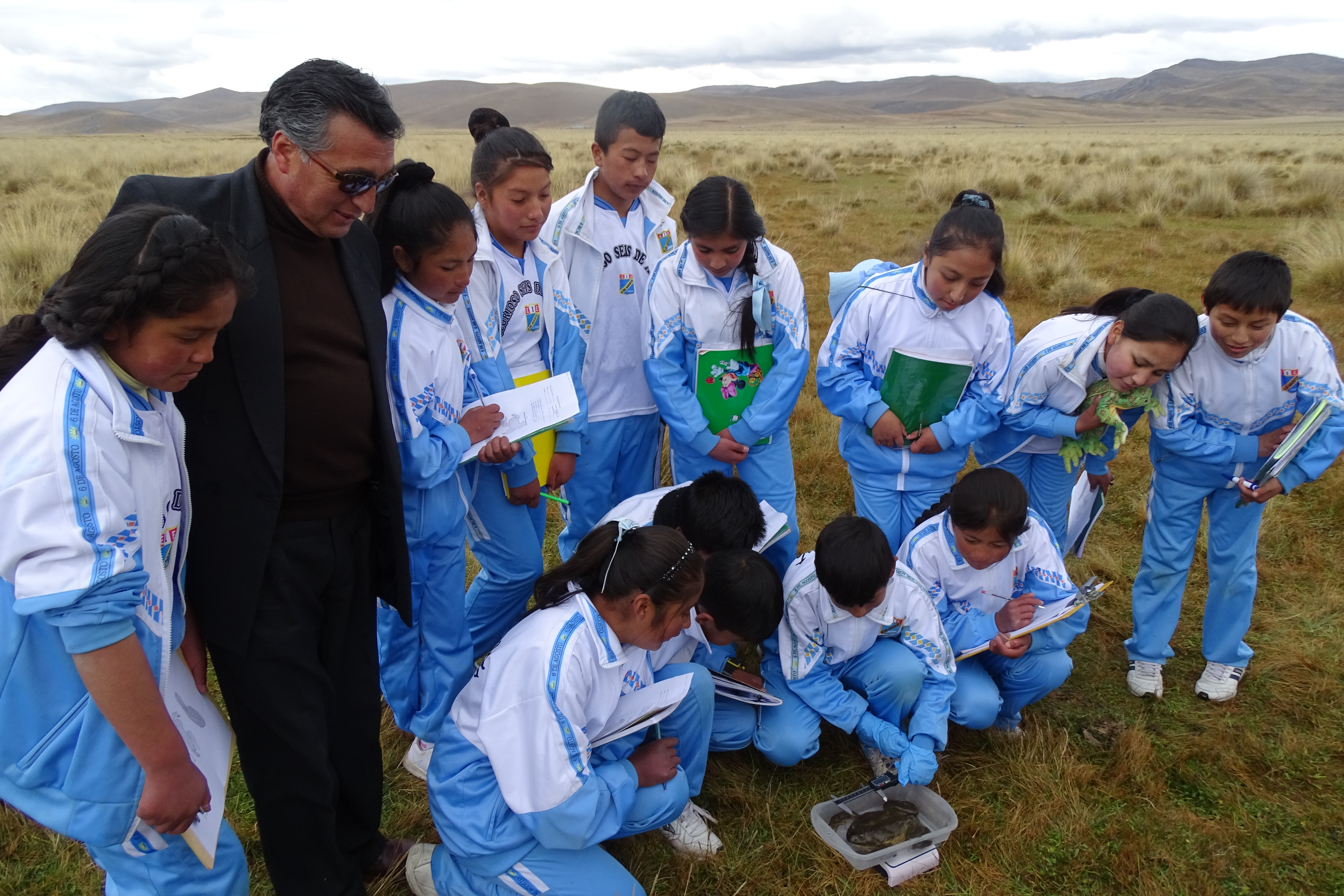The giant Junin lake frog, Telmatobius macrostomus, and Junin’s wancha, Telmatobius brachydactylus are two endangered frogs from the center of Peru, specifically found around Lake Junin (the second biggest lake in Peru). Before 2000, these frogs were abundant, but overexploitation, alteration, and degradation of their habitat, and the presence of invasive species have caused an incredible decrease.
Because of this situation, the NGO GRUPO RANA and its allies created a conservation program called “The High Andean Amphibian Conservation Initiative of the Lake Junin Basin,” our efforts are focused on researching new localities with a frog presence, and engaging students about frog conservation.
In 2018, we received our first grant from “NatGeoExplorer” thanks to National Geographic Society, and we identified new localities with frog populations, surprisingly in places near local communities. Then, we won our second grant thanks to The Rufford Foundation, this project’s objective was to promote good environmental practices, conduct environmental education programs, and to collect biological information from the frogs. We use methodology from Amphibian Ark’s “The Vanishing Frogs” to educate children and to start a pilot protocol to search for frogs. In total, 163 students from seven different schools were engaged in the importance of saving the Junin frogs. They collected biological information like weight, length, life stage, abundance, and habitat quality in streams near their schools. With these techniques, they are ready to assist in the study of the frogs with specialists and to promote conservation projects with their teachers.
The next steps are to implement an environmental education program in all the Junin schools and repeat activities to have students assist in monitoring the frogs’ habitat with quality data that can be used by stakeholders, specialists, and teachers. We are grateful to Junin National Reserve, DenverZoo, the local governments, the local communities, partner NGOs, our participating schools, and especially ASA to allow us to share our work.

